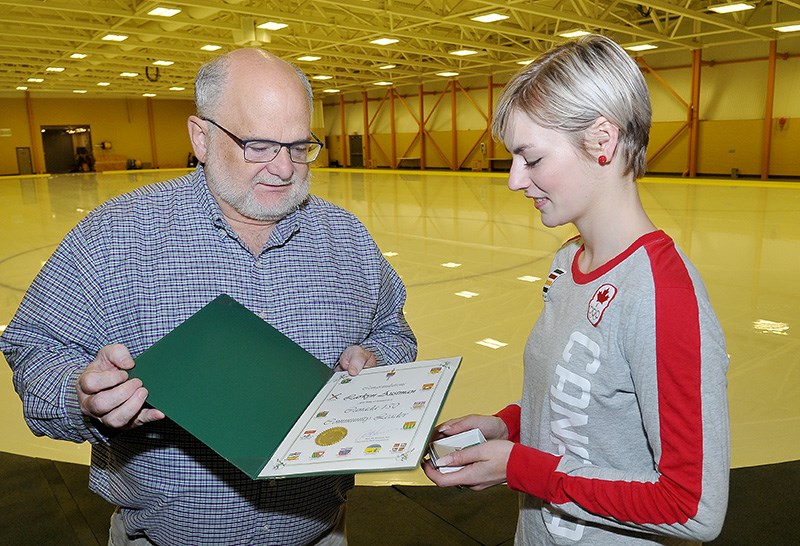Larkyn Austman achieved her Olympic dream when she skated at the 2018 Winter Games in Pyeongchang, South Korea, last February.
Now the work begins.
After a whirlwind winter in which the 20-year-old Coquitlam figure skater finished third at the Canadian national championships in January to earn a place on the team competing in Korea as well as a chance to compete at the world championships in Milan, Italy, in March, Austman took two weeks off and then got right back on the ice to begin preparing for her next Olympics, which will be held in Beijing, China, in 2022.
It may seem far off on the calendar, but it’s not, said Austman, who just failed by fractions of a point to qualify for the final long program skate in both competitions.
She said she was “devastated” to have come so far then come up just short, but the lessons learned have strengthened her resolve to move forward and up the rankings of international skating.
One of those lessons is to dial back her ambition in favour of consistency.
Austman said the difference between her reaching the finals at the Olympics and heading home after the short program was falling on a triple-triple combination jump instead of landing a more conservative triple-double.
“It’s better to have consistency and get it done,” Austman said during a break between her thrice-daily training sessions on the ice in the leisure rink at the Poirier Sport and Leisure Complex.
To find that sweet spot of technical proficiency and consistency, Austman and her coaches, Liz Putnam and Zdenek Pazdirek, are working on a new short program choreographed by Mark Pilay. And the team will soon redesign her long program.
It can be an extended, gruelling process, Austman said.
“Getting a new program is a lot of work,” she said. “It’s physically and mentally exhausting. I’m usually drained.”
The work begins when Pilay presents Austman with a piece of music he thinks suits her personality and capabilities. Then they begin constructing the technical elements and presentation, as well as the little touches of showmanship between them.
Austman said the falters that cost her in her short program made that an obvious need for a revamp, but letting go of her long program was a difficult decision. She loves the music, from the musical, Lez Miserables, and the black sequinned dress she wore. It wowed the judges at the Canadian championships enough to vault her from a disappointing sixth place standing after the short program to a spot on the Olympic team. But she only got to show it off twice in international competition. And to reinvigorate her training, she said she felt she needed a fresh start.
“Part of starting a new season is getting excited to train,” said Austman, who will spend much of the summer doing that training at a high-performance skating camp in Colorado Springs.
Months after Austman’s first Olympic experience, the glow still hasn’t dulled even though she felt she let a lot of people down when she wasn’t able to be amongst the 24 skaters competing in the long program final. After her workout, she pulls on her grey, white and red Canadian Olympic team sweatshirt to ward off the cool air of the arena. She trains, eats and even rests as an Olympian. And she thinks about her next Olympics.
“Four years is a long time,” she said. “But it’s four years to improve.”



